Chances are you’ve never heard about the Pamir Highway. Lisa hadn’t either, until very recently. However, Xavier had been reading stories about it since he was eighteen. It is one of the highest and most challenging roads in the world. It connects Khorog, in Tajikistan to Osh, in Kyrgyzstan and runs along the borders of China and Afghanistan. It ranks high on the bucket list of any overland traveler hungry for adventure.
This whole thing started in Samarkand, Uzbekistan around mid-October. We were having a beer when Xavier spotted an unattended travel bike outside the bar and started scanning the place with his eyes to spot the biker. It wasn’t long before we noticed a guy in biker shorts, leaning against the bar. Xavier waved, and the guy walked over. His name was Matt – or at least that’s what his Instagram handle says, we’ve actually never gotten around to exchanging names despite our many, many conversations over the next weeks. In a Brit accent, he explained that he and his brother had biked from London. They had biked through Switzerland on the same day we left, in early August, and here we were, sitting in the same bar in Central Asia three months later. Impressed doesn’t start to cover how we felt about their performance.
The brother in question, Nick, walked in, dressed in normal clothes. They explained that they had just met, after a few days apart. Nick had found that Matt was too slow in the morning and had biked off without him. Matt liked to enjoy his coffee and explore the place before heading off. We smiled as much in confusion as in understanding. A trip like this gets lonely, but it also gets crowded with the only other person you’re sharing it with daily. Their unconventional honesty was refreshing, it seemed to us they were simply accepting things and feelings as they came up. No need to pretend they loved every minute together. No need to pretend they didn’t need time alone. No need to pretend they weren’t different. And yet, they choose to embark on this journey together. You could argue they didn’t think it through – and thankfully they probably didn’t – but we rather think they simply managed brilliantly. You might wonder what these two characters have to do with this story. Well, they jump started an adventure we never planned on having.
We discussed the state of the roads, and they told us they had biked through the tough desert that extends from Western Kazakhstan all the way to Khiva, Uzbekistan. We’re talking 900 kilometers of desert. Windy enough to blow sand into your eyes, gums and ears all the time. Only the terrible condition of the roads to distract you from their never-ending straightness. Not one city with anything to show for it, not a half day distraction. Lisa had only one thought on her mind: what do they think of when they bike for so long? To her, these 900 km of open desert on a bike sounded like a month-long silence retreat: terrifying but deeply introspective. We finally got to discussing the usual next destinations. When they said, “We’re going to bike the Pamir Highway”, we looked at each other, thinking “Is this possible?”. We saw it differently though: Xavier was convinced they had a mental illness, while Lisa was mesmerized with such blunt confidence; it seemed unshakable. This lit the very first tiny flame in this adventure we still didn’t know was ahead of us. We asked them about more details, which they proceeded to explain, and Matt asked if we had driven it or if we’d do it. When we said no, he simply said
“Well, you should do it”.
For context, this high-altitude road that is the Pamir Highway, or M41, as it was called during Soviet times, is also known as the Roof of the World, or infamously named The Food Poisoning Highway among travelers and was competed in the 1930s by the Soviet Union. The Russian started its construction at the end of the 1880s. Two big empires were fighting each other then: the Russian and the British. The British had what is nowadays India and Pakistan. The Russians roughly had nowadays Kazakhstan, Uzbekistan, Kyrgyzstan, Turkmenistan, and Tajikistan, which would later be incorporated into the Soviet Union. The Pamir region, a Tajik plateau, was a place so remote it wasn’t even mapped. The word “pamir” refers to high grasslands and nomads were coming and going with their cattle. It is home to some of the highest and roughest mountains in the world and the winters are the stuff of books. The only people roaming these empty lands were spies or adventurers, Russian and British. Imagining travelling up there, let alone building a road, seemed unthinkable. Yet, the Russian wanted to expand their influence while being able to also deploy an army against the British if it came to it, and decided a road was to be constructed. In 1933, the first car drove the Pamir Highway from Osh, Kyrgyzstan to Khorog, Tajikistan, climbing the several passes up to 4600m and over the endless plateau at 4000m.
On some parts, the asphalt has been laid once in the entire history of the road. You can try to imagine what unmaintained 1930-asphalt looks like today. Add to that the fact that it was late October when we were discussing this, and winter was coming. Few people drive this road. Fewer bike it. Of the ones who do it, most do it in summer and if with a car, it’s a 4x4. With all that being said, we can safely say our peaceful time in autumnal Uzbekistan was over. From Samarkand, we headed straight to Dushanbe, which is located at one end of the Pamir Highway as we know it today. A few days of serious errands awaited us.
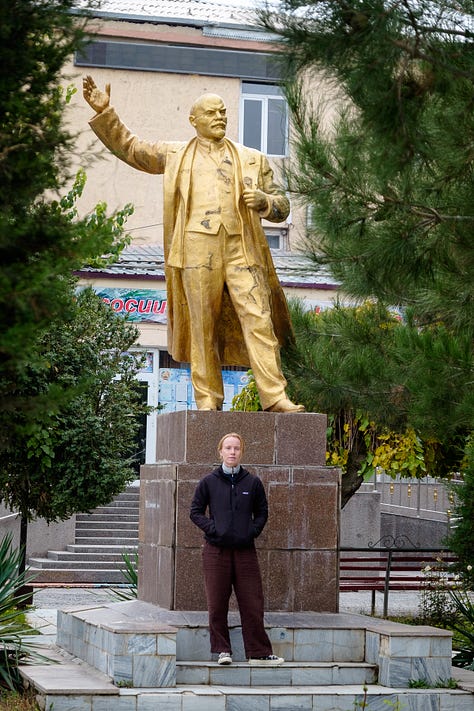
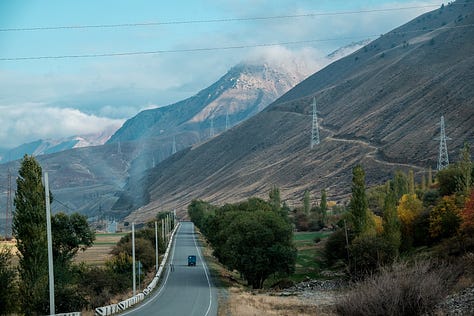
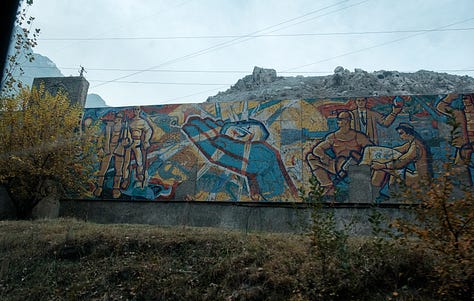
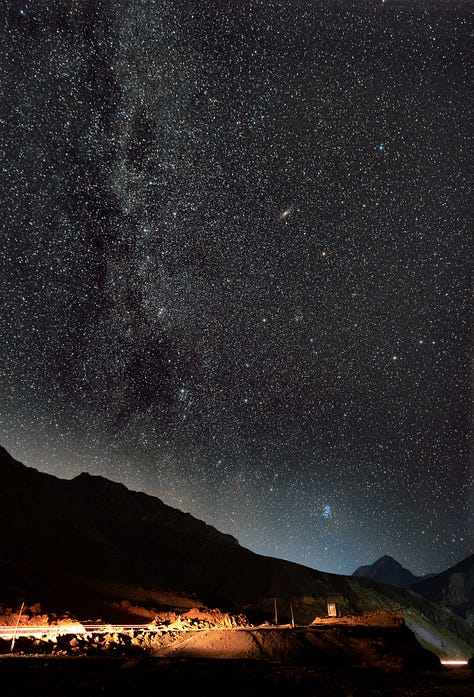
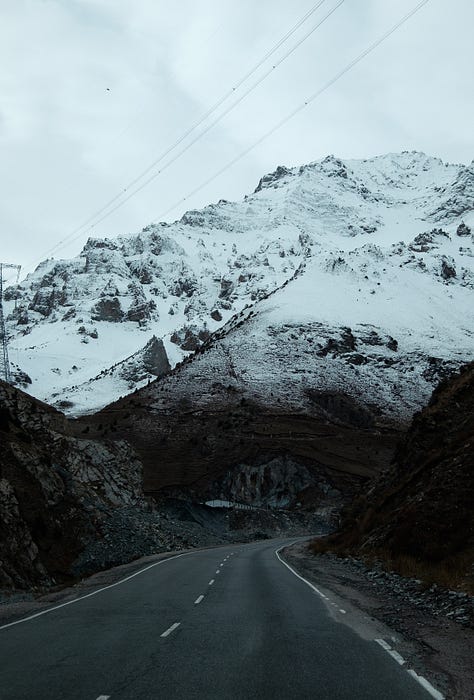
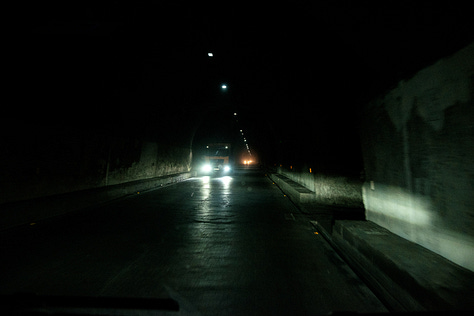
Xavier had thoroughly analyzed the weather forecast, and it seemed we would have a 7-days window to drive the Pamir before heavy snowstorms would make our trip impossible. We had maximum two days in Dushanbe before that good weather window to prepare. We went to the bazar so Lisa could buy some warm winter boots. The next day, we first headed to the interior ministry office to collect our permits for the Pamir region, which is a politically sensitive area. As usual, the police officer asked for more money than the permits were supposed to cost. Met with our relentless insistence – we made it a point not to enter the bribing system – he finally dropped to the correct price. Having to pay by cash, we gave him the only bill we had. “I worked fast, permit done in 5 minutes!” he said, and kept the change. We then split tasks: Xavier went to get one of the van brakes fixed (it broke in the middle of nowhere, and we had patched it with zip ties) while Lisa went food shopping – because you know, food poisoning highway. Together, we then went to the largest Bazaar of Tajikistan to look for antifreeze diesel additive: the only diesel available in the country freezes at -5ºC, and we were expecting much colder nights. This additive proved really hard to find. Here 99% of cars run on electricity or gasoline, and sellers had no clue about what we needed. Plus, they probably could not understand a single word of our broken Russian. We bounced from one stall to the next like a pinball, avoiding multiple attempts at selling us all sorts of other (useless) car fluids. On the edge of abandoning the entire mission, we met a guy who knew a guy that could maybe find a guy that had what we were looking for. Five minutes later, an old man appeared with 2l of antifreeze additive. We finally had everything we needed.
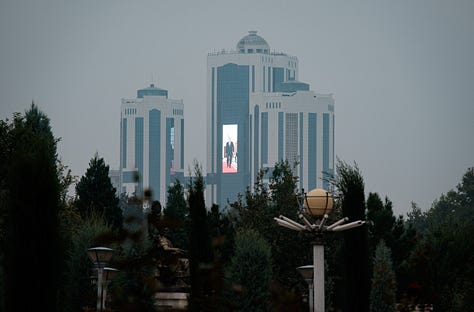
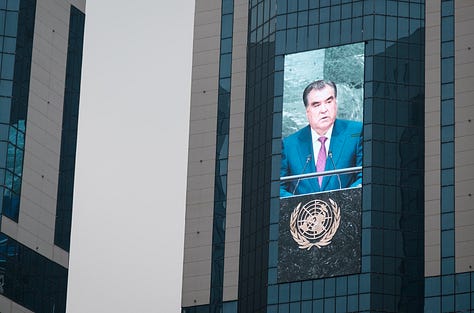
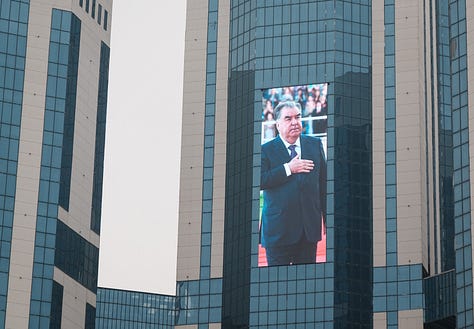
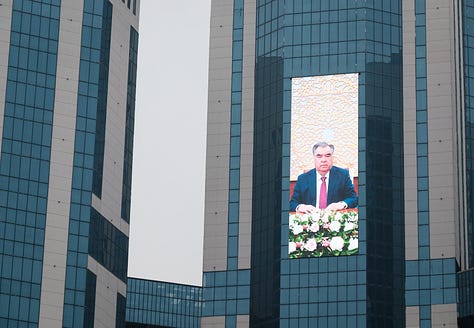
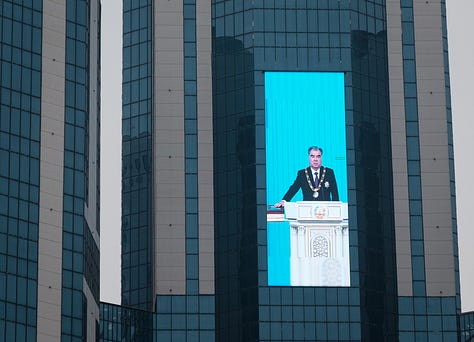
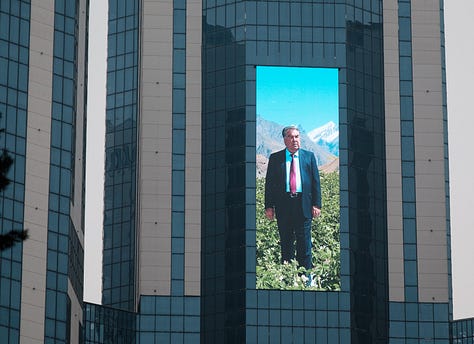
The next morning, we headed to Matt and Nick’s hostel to collect Matt’s extra clothes he didn’t need on the Pamir – we agreed to drop them off for him at the end. They hadn’t brought any winter gear with them and since they traveled with a tent, and -13ºC were awaiting them at night on the Pamir, they headed to the secondhand bazar in Dushanbe. It was a gold mine: all the disposed neon-pink onesies skiing suits that our parents used in the 80s were here. It was a full circle: items Westerners had given away decades ago were now in the possession of Matt. We didn’t know if we’d meet them again, they would be slower than us up there; so we said goodbye, wished them luck and parted ways.
We’re publishing this story in parts. Next time: Day 1 - from Dushanbe to Qalai-Khum





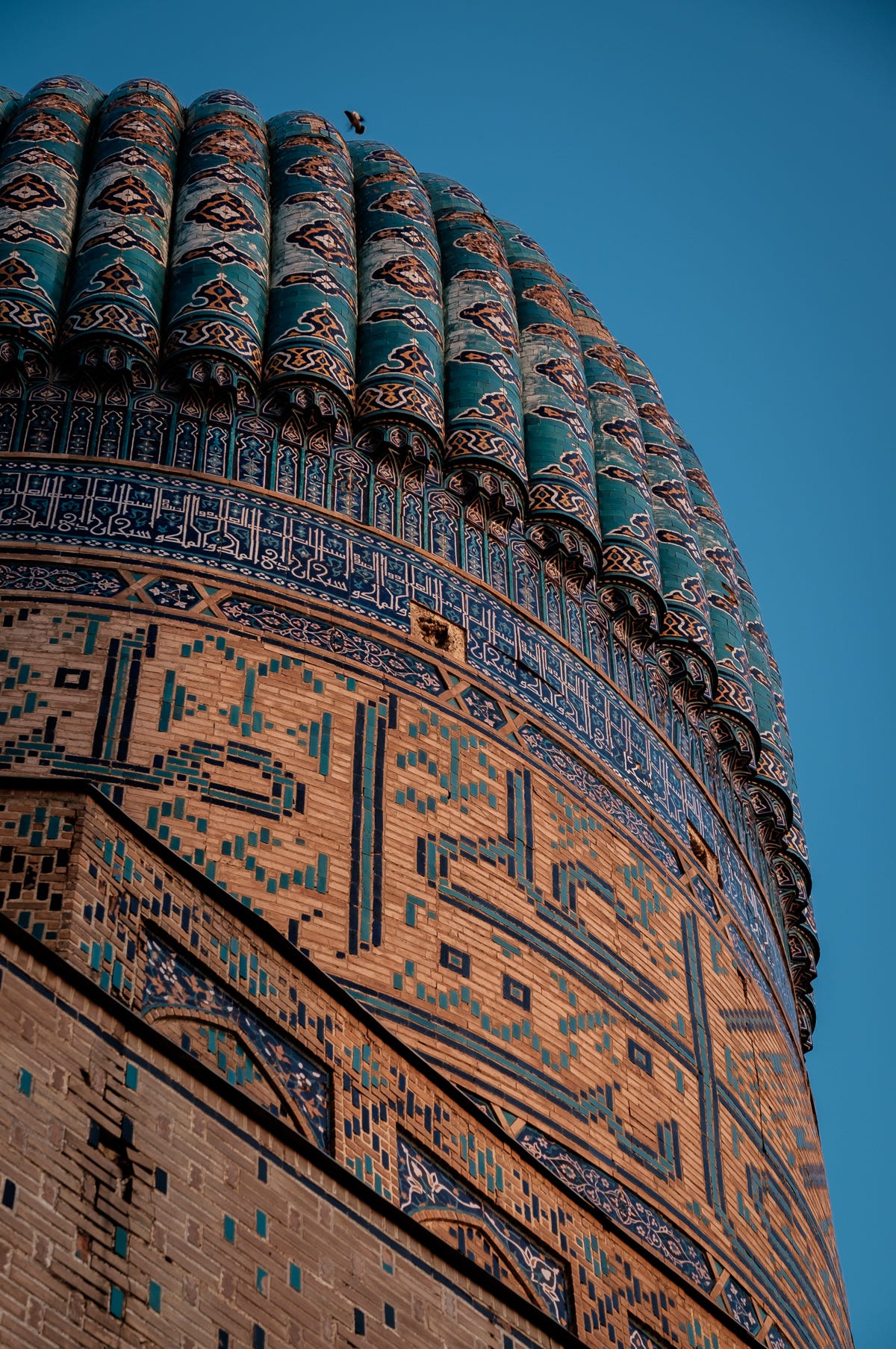
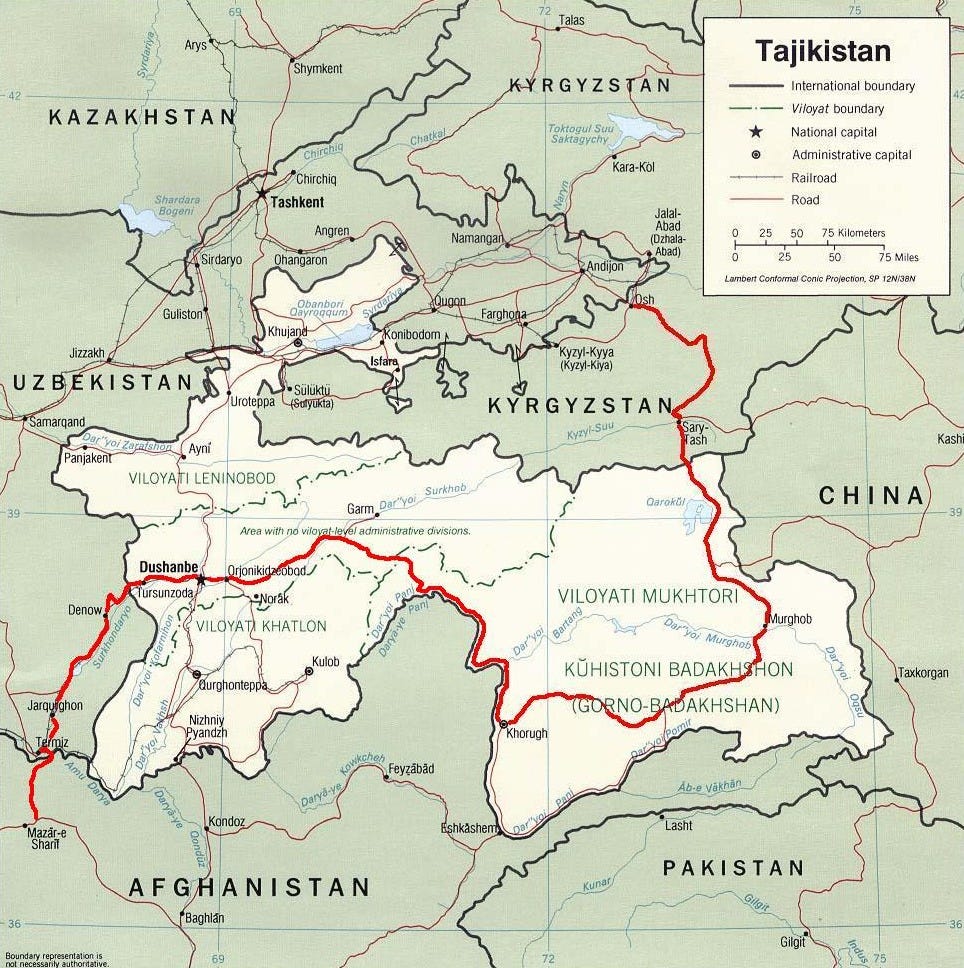
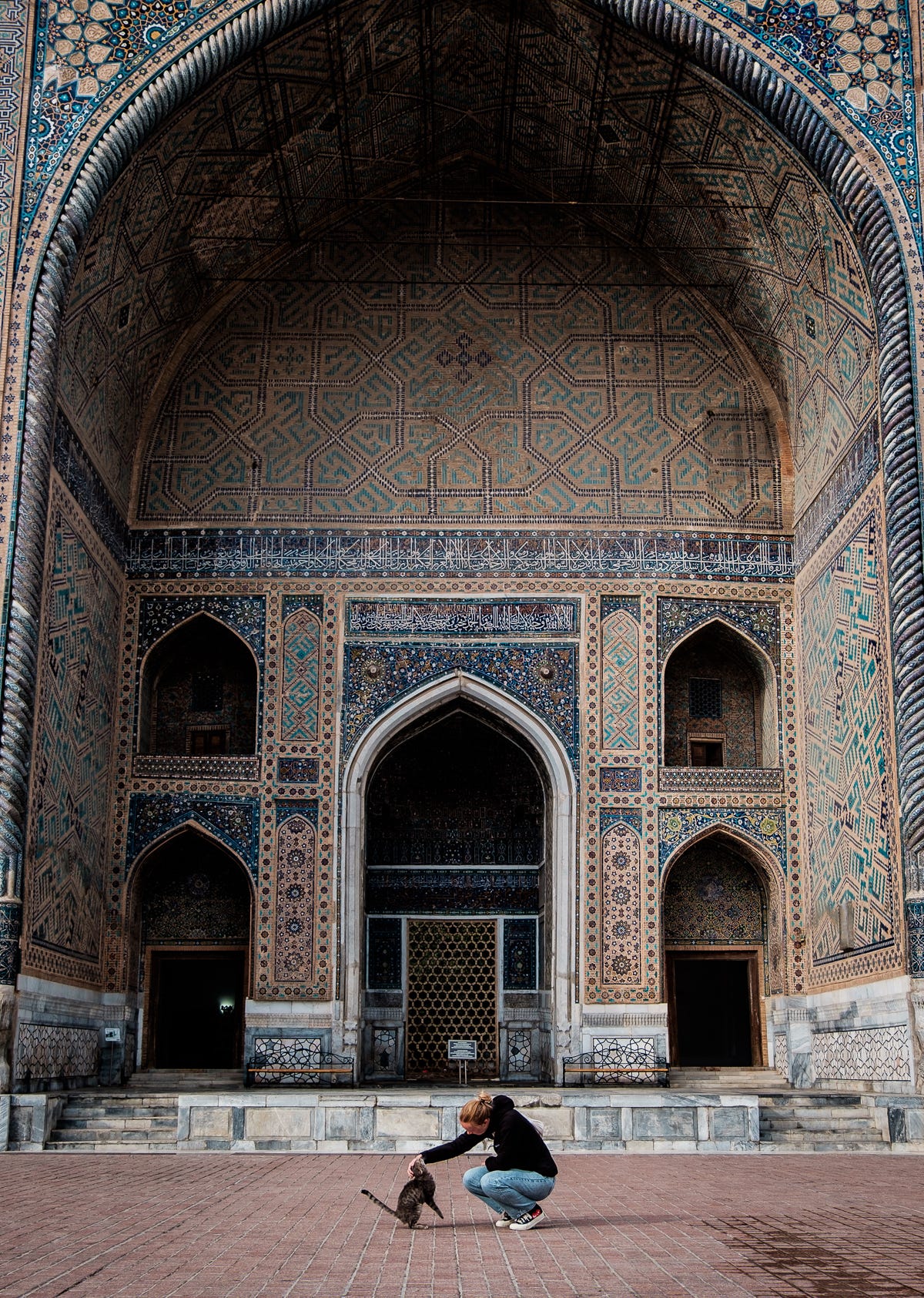
I love when the adventure gives this window of changing the inicial plan based on the interaction with the other adventurers around. Keep traveling safe and sharing the anecdotes with us! 💛